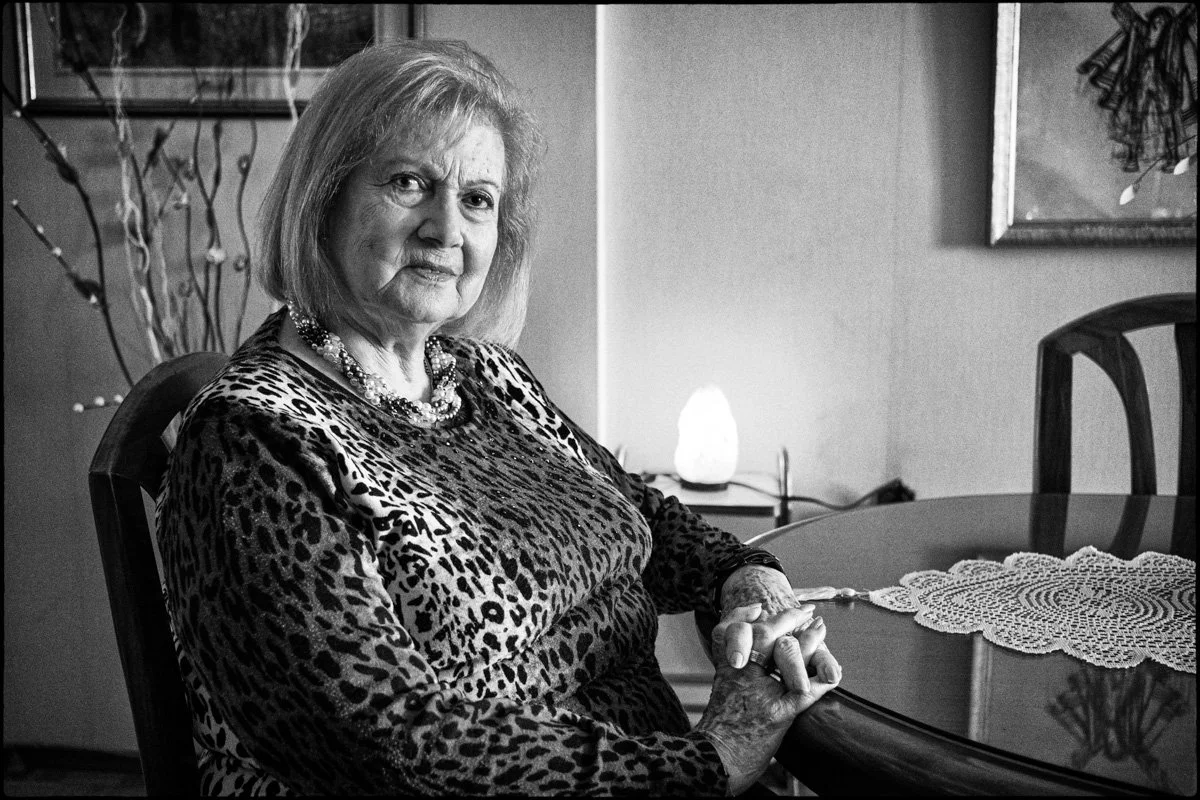She was born on August 1, 1932 in the city of Kharkov, former Soviet Union. For work reasons her parents moved to Odessa, where Lala - as she was called - had a happy childhood. At the age of 9 she was diagnosed with whooping cough which meant that, together with her mother, they moved for a time to her paternal grandparents' house in Kharkov. They traveled on June 22, 1941, the same day the Nazis invaded the Soviet Union. Larissa would only return to Odessa, as a tourist, fifty years later.
Her father was called to the front to fight in the Red Army. When the bombings began, the government carried out a massive evacuation that ended up in Uzbekistan. Alone with her mother, she experienced extreme poverty and suffering. Soon they received a telegram confirming her father's disappearance on the battlefield. Her last postcard had arrived on July 30, 1942.
The end of the war found her with a stepfather whom she would love as her second father, Symcha Inwentarz, who married her mother. For two years, they toured Europe collecting more than 100 Jewish orphans - thanks to the Joint's intervention - whom they helped ship to the promised land, what is now the State of Israel.
Testimony:
"As time goes by, happiness erases the memory of suffering. What one never forgets is the love one has received. What I ask from life is peace, nothing else. Peace for my children, my grandchildren and my great-grandchildren".
_________________________
Larissa Mogilewski Inwentarz / Uruguay 2020
Nació el 1 de agosto de 1932 en la ciudad de Járkov, ex Unión Soviética. Por motivos laborales sus padres se mudaron a Odesa, donde Lala -como la llamaban- tuvo una infancia feliz. A los 9 años fue diagnosticada con tos convulsa lo que significó que, junto a su madre, se mudaran, por una temporada a la casa de los abuelos paternos en Járkov. Viajaron el 22 de junio de 1941, el mismo día que los nazis invadieron la Unión Soviética. Larissa sólo volvería a Odesa, como turista, cincuenta años después.
Su padre fue llamado al frente para combatir en el Ejército Rojo. Cuando comenzaron los bombardeos, el gobierno realizó una evacuación masiva que terminó en Uzbekistán. Sola con su madre, vivió situaciones de extrema pobreza y sufrimiento. Pronto recibieron un telegrama que confirmaba la desaparición de su padre en el campo de batalla. Su última postal había llegado el 30 de julio de 1942.
El fin de la guerra la encontró junto a un padrastro a quien ella amaría como su segundo padre, Symcha Inwentarz, quien se casó con su madre. Durante dos años, recorrieron Europa recogiendo a más de 100 huérfanos judíos -gracias a la intervención del Joint- a quienes ayudaron a embarcar a la tierra prometida, lo que es actualmente el Estado de Israel.
Testimonio:
"A medida que pasa el tiempo, la felicidad va borrando el recuerdo del sufrimiento. Lo que uno no olvida nunca, es el amor que ha recibido. Lo que le pido a la vida es paz, nada más. Paz para mis hijos, mis nietos y mis bisnietos"

